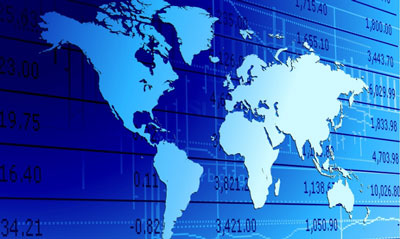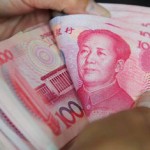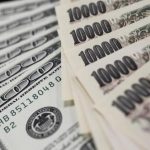Global economy is facing a ‘perfect storm’, warns BIS chief

The problem with the current US policy of using tariffs to pursue trade and economic strategies is that they are such a crude tool to use within such a complex, sophisticated and global ecosystem.
The Bank of International Settlements’ Agustin Carstens has outlined how the interaction between the real and financial risks within that global ecosystem could interact to create a destructive ‘’perfect storm.’’
Speaking at the Jackson Hole meeting of central bankers in Wyoming at the weekend Carstens, the BIS general manager, provided a detailed road map of how protectionism could set of a ‘’succession of negative consequences’’ that endangered decades of global economic gains.
His starting point was that low barriers to trade and investment and international competition steered resources towards more productive industries and firms, disciplined prices and acted as a countervailing influence to oligopolies and the margins of dominant firms.
Reversing globalisation, he said, could lead to higher prices, increased unemployment and lower growth while risking unravelling the financial inter-dependencies that enabled and encouraged trade and investment links.
In turn that could unsettle financial markets and decrease capital spending and the interaction between the real and financial risks could amplify each other, creating that ‘’perfect storm.’’
He linked the low inflation of recent years to the globalisation of firms and markets, with competition from low-cost countries and advances in technology driving down production costs and prices in advanced economies.
The complexity of the trade issues is underscored by the development of global supply chains.
Global trade in intermediate goods and services is now almost twice as large as the trade in final goods and services. Global value chains, he said, were particularly important in advanced manufacturing, like cars.
A retreat to a world of local production could undermine the market discipline that helped curb inflation and inflate prices but industries built around global value chains couldn’t switch from imported to local inputs overnight. US production costs would, for instance, rise with tariffs on imported inputs.
If prices rise so does the pressure on central bankers. The US is already in the process of slowly raising its rates, a policy reaffirmed by the US Federal Reserve Board chair, Jerome Powell, at the same conference. Higher US inflation could increase the pace and trajectory of US rate increases.
That in turn could lead to a further strengthening of a US dollar that has already appreciated nearly 7.5 per cent in the past six months, hitting US exporters with a ‘’double whammy’’ while tightening financial conditions for emerging markets, particularly those that borrowed heavily and cheaply in US dollars in the post-crisis period.
We’ve already seen a raft of developing economies – Argentina, Indonesia, Turkey, the Philippines, Brazil, India and Pakistan forced to raise their rates to defend their currencies and attempt to deter capital outflows.
It isn’t just trade that has been globalised but its financing, with Carstens saying that complex trading relationships like global value chains need complex financial services, with lots of working capital, lots of exposures to foreign currency risk and lots of complex derivatives and hedging strategies to offset the risks. The US dollar is the dominant currency in global trade.
‘’Dollar appreciation can reduce credit supply and demand and tighten financial conditions for many emerging market firms, hurting employment and investment, ‘’ he said. Reducing dollar credit – dollar borrowing by non-banks outside the US is about $US11.5 trillion ($15.7 trillion) – could also undermine global value chains.
As Carstens indicated, there is a symbiotic relationship between advanced and emerging market economies. Weaker economic activity in emerging market economies reduces demands for exports from advanced economies and vice versa.
In recent days President Trump has criticised the Fed for raising rates and begun trying to talk down the value of the US dollar. The Fed has yet to blink – Powell told the conference that there was good reason to expect the US economy to sustain its recent strength and ‘’the gradual process of normalisation (of US monetary policy) remains appropriate.’’
Indeed, with US rates expected to be increased at least once more this year (probably next month) and perhaps twice, and the Fed continuing to wind back its balance sheet even as higher federal budget deficits are forcing the US Treasury to issue more bonds, the yield premium between the US and most of the rest of the world – and the upward pressure on the dollar — is increasing.
If the US-initiated tit-for-tat tariff increases flow through into US inflation, US rates would rise more quickly and to a higher-than-currently expected level and the yield premium would also be exaggerated by the ‘’flight-to-safety’’ phenomenon that occurs whenever global uncertainty and risks increase.
Trump has said that trade wars are good and easy to win. The Carstens analysis underscores the reality that, despite the imperfections of the globalised system of trade and finance, no-one is likely to win from protectionism, not even the US. Indeed, everyone – including the US – is more likely to be a loser.
Source: The Sydney Morning Herald – Global economy is facing a ‘perfect storm’, warns BIS chief





























